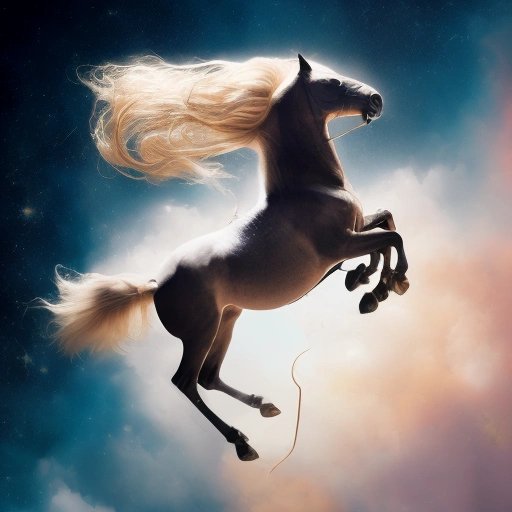NASA astronaut, Rebecca White, has made an unprecedented discovery during her most recent mission in space - horses do not work well in space!
As part of a series of experiments to test the effects of zero gravity on farm animals, astronaut White enlisted the help of a four-legged friend. The goal was to observe how a horse would react in a weightless environment. However, things did not go as smoothly as Rebecca had hoped.
As soon as the horse was released from its harness, it began to float aimlessly through the air, much to the surprise of the astronaut and her team. The horse's instinct to stand on its hooves was completely disturbed, and it was clear that this animal was not suited for life in space.
Rebecca, the first person to ever attempt to ride a horse in space, described the experience as "hilarious". She struggled to stay seated on the animal as it floated in various directions, and the spectacle left her and her team members in stitches.
In a follow-up interview, the astronaut shared more information about the challenges of equestrianism in space. She explained that a horse's hooves are not suitable for gripping onto surfaces without gravity, which would make it extraordinarily difficult for the animal to navigate the space station. Additionally, the lack of atmosphere and open fields for horses to explore would make it nearly impossible for them to thrive in space.
However, the experiment was not all for naught. The team was able to gather an unexpected benefit from their equine companion - horse manure! In a stroke of genius, Rebecca realized that the waste produced by the horse could be used as a renewable energy source to power the station.
"We were all stunned by the discovery," Rebecca stated. "It turns out that horse manure is the perfect fuel for our energy systems up here. Not only is it readily available, but it's also relatively easy to store and transport."
NASA engineers are currently working on ways to integrate horse manure into their energy sources, and many experts believe that this discovery could have significant implications for space travel in the future.
In conclusion, while the vision of a horse galloping through space may be amusing, the reality is quite different. The challenges of weightlessness and lack of atmosphere make horses unsuitable for long-term survival in space. However, the unexpected benefits of horse manure as a renewable energy source are undeniable and could revolutionize the way we power space missions.
Who knows what other mysterious discoveries lie ahead for scientists and explorers as we continue to venture into the unknown corners of the universe? Only time will tell.
